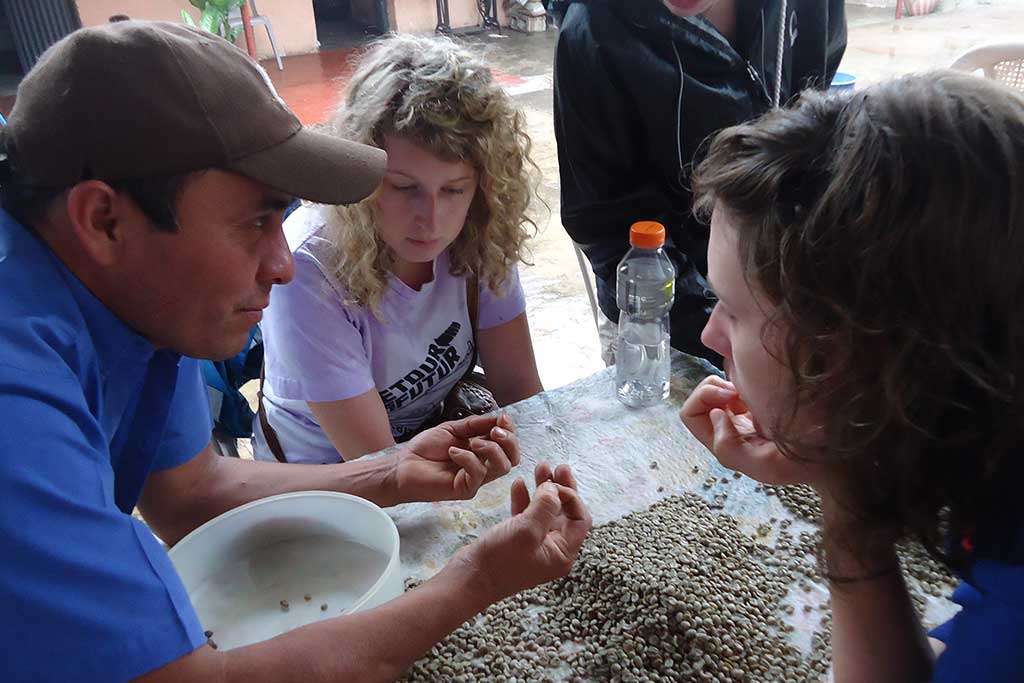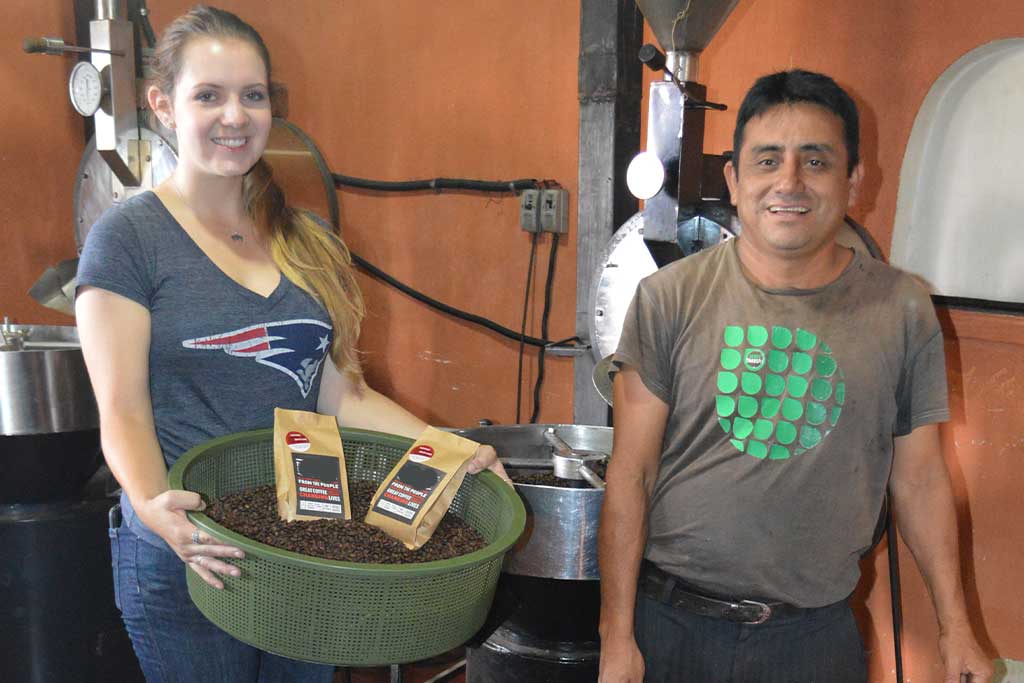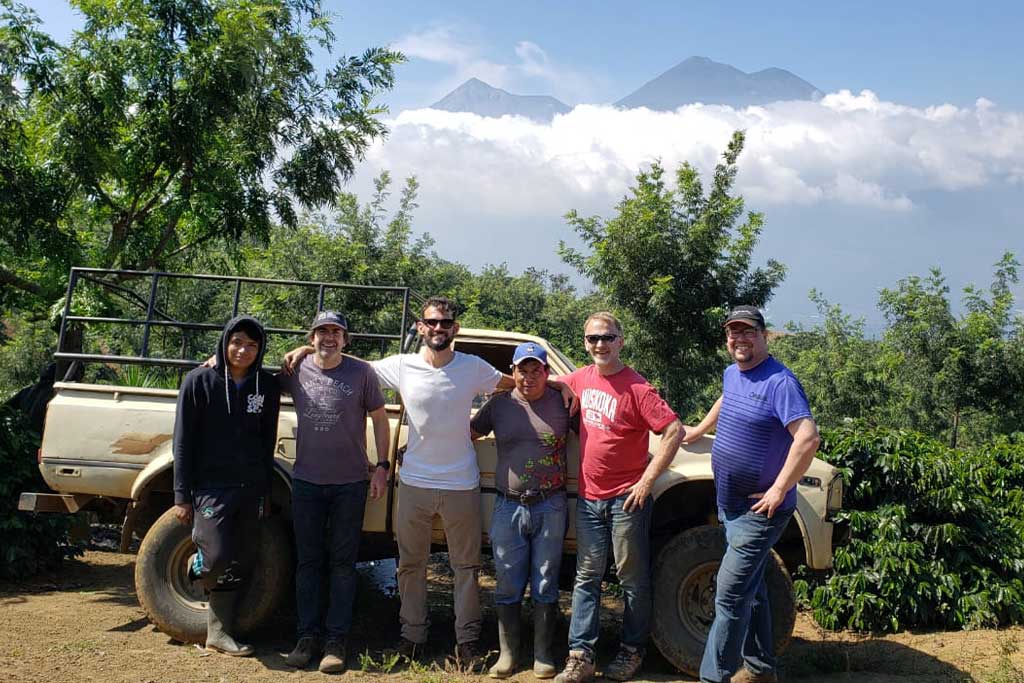I was a third-year business major wondering what was next for me. Despite spending countless hours studying management, marketing, and finance, I didn’t have a hands-on background in my field. Reading case studies is never the same as learning firsthand, so I started researching business internships. I wanted some professional experience in my back pocket before I graduated and started handing out resumes.
In an increasingly competitive and international market, global perspective has become an essential part of any business education. This is why I decided to intern abroad. While I was exploring different locations, Máximo Nivel’s micro-business internship program caught my eye. I was excited by the opportunity to see for myself the power a small company has to influence its local economy. So I booked a flight for Guatemala, eager to experience another culture from its workforce.
The company I was paired with was a small coffee operation in Antigua, which focused on ethical sourcing and distribution. Even though Guatemala possesses the ideal natural resources for growing coffee, the farmers themselves are often left with meagre and irregular pay. The micro-company I worked for was a third party organization helping farm workers make larger profits than they would typically receive from big-name buyers.

By partnering with cooperatives that grow high-quality arabica coffee but lack the resources to market their products effectively, the company has created a mutually beneficial solution. They facilitate direct connections between farmers and consumers to help everyone involved pull a profit. The chain of supply they created has made the coffee business more reliable for the people producing it without compromising quality.
I was pleasantly surprised to see such sustainable business practices at work in a developing economy, and I learned so much from the parent company’s business model. The non-profit organization’s mission is to make the coffee industry more equitable for the communities in which it originates. Coffee is a ritual across cultures, so why can’t we make the pay as consistent as the consumption? It is unfair that so little of the money made by the international coffee trade typically ends up in the hands of the people who are growing it.
Coffee is a prominent export in Guatemala, and the farmers who are relying on the crop’s success shouldn’t be constantly struggling to make ends meet. The NGO I interned with is passionate about creating coffee from the people for the people. By developing a socially responsible business model, the organization has been able to help farmers earn standardized incomes while regularly shipping hand-processed, shade-grown beans to American and Canadian roasters. They also run an online store.

The evolution of the business has gone hand-in-hand with the development of their agricultural technology. The organization has dedicated a lot of time to improving farming infrastructure, encouraging community tourism, and rebranding their beans to attract more international attention. They even run immersive learning experiences on their growing grounds in order to pay the farmers better wages. The company has coupled its already successful coffee production operation with a sustainable tourism component.
It was inspiring to briefly be part of a business that is creating economic opportunities from its country’s rich natural resources. I was also so thankful for the hands-on role I got to play in not only day-to-day operations and client service, but also in their online marketing and PR campaigns. As important as it is to foster a culture of conscious consumerism, the business could not exist or continue to support local communities if it weren’t financially sustainable itself.
Many of my responsibilities were straightforward and functional. I fielded phone calls and worked with on-site staff to manage online orders and make sure that the international shipments to roasters ran on schedule. These simple interactions put my English and Spanish communication skills to the test. But my role in the company was not limited to technical tasks. I was able to think creatively and offer my insights into the potential preferences of the company’s foreign clientele.

My supervisors were very open to hearing my ideas about how we could enhance their online platforms. We talked about numerous strategies including revamping the aesthetics of their website and product packaging, offering seasonal promotions, including tax and shipping in the sticker prices of products, and increasing the company’s presence on social media. But what was even better than these collaborative conversations was seeing some of my ideas come to life.
Catering outreach and marketing to international consumers is vital for the growth of developing enterprises. Therefore, a budding organization’s online presence is especially important to their expansion and longevity. I really enjoyed tailoring the company’s website and social media pages to their predominantly North American customer base, as well as polishing pre-existing content so that English translations sounded more professional and idiomatic. I am so grateful for the diverse work experience I returned home with.
I may have interned for a “micro-business,” but I gained a large array of professional experience. I was able to assist on both the customer service end of the organization and with behind-the-scenes operations. The reach of this small coffee NGO made me realize just how global even a local farming cooperative can be in today’s society. I absorbed so much information about sustainable business, international networking and the coffee industry, and I can’t wait to bring my expertise into whatever’s next.
